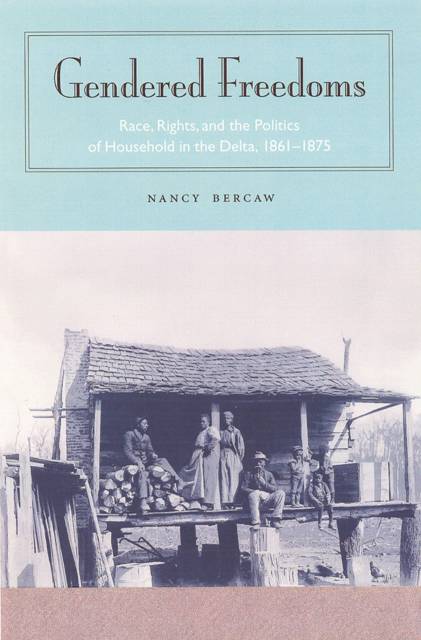
Bedankt voor het vertrouwen het afgelopen jaar! Om jou te bedanken bieden we GRATIS verzending (in België) aan op alles gedurende de hele maand januari.
- Afhalen na 1 uur in een winkel met voorraad
- In januari gratis thuislevering in België
- Ruim aanbod met 7 miljoen producten
Bedankt voor het vertrouwen het afgelopen jaar! Om jou te bedanken bieden we GRATIS verzending (in België) aan op alles gedurende de hele maand januari.
- Afhalen na 1 uur in een winkel met voorraad
- In januari gratis thuislevering in België
- Ruim aanbod met 7 miljoen producten
Zoeken
€ 38,45
+ 76 punten
Omschrijving
In May 1862, hundreds of African-Americans freed themselves in the Yazoo-Mississippi Delta and in the process destroyed the South's fundamental structure of power - the plantation household. Yet at the moment of freedom, southerners did not discard what they knew. Instead, blacks and whites, men and women constructed competing visions of freedom based on their particular understanding of household authority. General Freedoms explores this first generation of freedom and presents an intimate history of the political consciousness of the franchised and disenfranchised during the Civil War and Reconstruction in the Mississippi Delta. Gendered Freedoms is the first book to analyze black and white southerners' subjective understandings of the household, challenging us to reexamine the relationship between identity and political consciousness. Where others emphasize the household principally as a structure based on an ideology of power, Nancy Bercaw demonstrates how deeply household hierarchies permeated into southerners' most personal sense of themselves, shaping their perceptions of their autonomy, rights, duties, and obligations to one another. The author highlights the importance of
Specificaties
Betrokkenen
- Auteur(s):
- Uitgeverij:
Inhoud
- Aantal bladzijden:
- 304
- Taal:
- Engels
- Reeks:
Eigenschappen
- Productcode (EAN):
- 9780813027883
- Verschijningsdatum:
- 24/04/2003
- Uitvoering:
- Paperback
- Formaat:
- Trade paperback (VS)
- Afmetingen:
- 154 mm x 227 mm
- Gewicht:
- 453 g

Alleen bij Standaard Boekhandel
+ 76 punten op je klantenkaart van Standaard Boekhandel
Beoordelingen
We publiceren alleen reviews die voldoen aan de voorwaarden voor reviews. Bekijk onze voorwaarden voor reviews.









